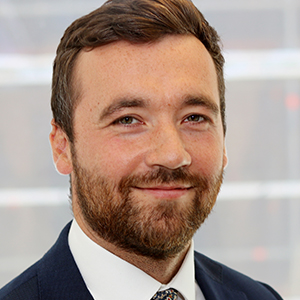Air travel was once the height of glamour. However, in recent times the reality at 30,000 feet is somewhat different, with alarming statistics that suggest sexual offences on board airliners have increased significantly, resulting in a record number of claims being made by passenger victims.
In this article, international aviation solicitors James Healy-Pratt and Owen Hanna explain some of the legal issues passenger victims have to face when bringing claims against airlines for sexual assault in this complex area of international aviation law.
There are regular reports of in-flight sexual assault offences in the media. Just last month, a British passenger was arrested by police on arrival at Heathrow on suspicion of raping a fellow passenger on board a Boeing 767 United Airlines flight from Newark (USA) to London (UK). The allegation is being investigated by the Metropolitan Police and a CPS prosecution decision will be made in due course on whether sexual offence charges will be brought.
In the US, reported sexual offences on aeroplanes increased by one third in 2017. Undoubtedly, the #MeToo movement played an important role in giving more confidence to passenger victims to speak up against their perpetrators as well as pushing to change ineffective crew training. Zero tolerance of any sexual impropriety is the only acceptable policy for airlines, and sitting behind that, effective crew training to prevent excessive alcohol consumption on board. Not surprisingly, the enhanced physiological effects of alcohol at altitude go hand in hand with sexual offences.
Action under US and English law
Whilst any criminal prosecution relating to the recent United Airlines flight will happen here in the UK, the position of the passenger victim is not restricted to English Law. Under international aviation law, the passenger victim has the choice to take action against United Airlines in the US or the English courts. There are vast differences in compensation in the US courts compared to the English courts. In a claim of this nature, our experience would suggest a potential US claim in the region of US$10,000,000, compared to a potential English claim in the region of £100,000. US Courts and US juries are very aware of the level of emotional and physical trauma from sexual attacks, and compensate passenger victims accordingly.
Airlines owe a duty to their passengers to keep them safe, as well as safe from sexual assault and abuse. Over the past twenty years, there have been a string of in-flight sexual assault cases brought by passenger victims against a plethora of airlines, including KLM, Korean Airlines and American Airlines.
The legal issue that passenger victims have to face is whether the facts of a sexual assault fit within the aviation legal framework that makes the airline legally liable. Whilst in-flight sexual assaults may follow a pattern, each assault has its own facts. The international case law over the past twenty years has shown airlines and their aviation insurers fighting claims by passenger victims on technical grounds, with very mixed results.
This is a complex area of specialist international law. All passenger victims deserve the legal safe space with experienced international aviation lawyers to consider their best course of action.
If you have any questions on the issues raised in the article, please contact James Healy-Pratt and Owen Hanna.
This article is for general information purposes only and does not constitute legal or professional advice. It should not be used as a substitute for legal advice relating to your particular circumstances. Please note that the law may have changed since the date of this article.


